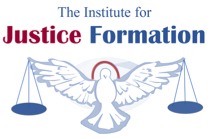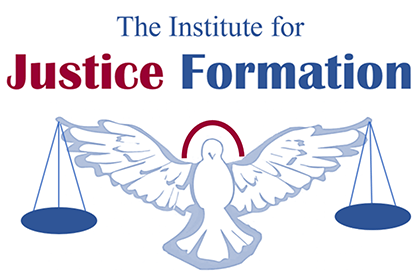I am a systems person by nature and training.
I have always been fascinated with why and how things work; understanding if I poked something here, why something moved over there; cause and effect.
While my mother didn’t appreciate this aspect of my personality when she came home to yet another dismantled appliance that I was trying to “figure out,” my need to understand the interconnectedness of things has always been one of the hallmarks of my existence.
It helped me actually enjoy engineering courses and aided my studying of systematic theology in seminary, where classmates and I would spend hours diagramming our grand theologies on classroom whiteboards.
As life progressed, I have gained a greater appreciation for the vast number of interconnected systems in which we are involved.
Understanding that the same invisible gravitational forces that govern planetary orbits also help our bodies’ atoms bind together or realizing how our decision to buy a pair of shoes, or not, impacts the well-being of distant factory workers, corporate profits and the value of retirement accounts has helped me see the world as a connected whole.
In his now famous Letter from a Birmingham Jail, Martin Luther King Jr. expressed how interrelated systems influence our lives, writing that, “In a real sense all life is inter-related. All men [people] are caught in an inescapable network of mutuality, tied in a single garment of destiny. Whatever affects one directly, affects all indirectly.”
He continued, “I can never be what I ought to be until you are what you ought to be, and you can never be what you ought to be until I am what I ought to be. … This is the inter-related structure of reality.”
It is from this interrelated systemic vantage point that I would like us to reflect on the life and work of one of America’s most quoted moral voices.
The various systems in which we are embedded are not benign. Whether it is shopping at a particular store because their ATM won’t charge us fees or using our social networks to obtain a new job, systems shape and guide our lives in often small but powerful ways.
Understanding this, King saw the movement he represented as more than a plea for individual or national repentance but rather a call to redeem the systems and structures that created and sustained the evil and hatred that hindered America’s march toward its aspirational goal of unfettered access to life, liberty and the pursuit of happiness for all people.
King saw Christian faith in action as the primary means to dismantle the interrelated systems of poverty, racism and militarism, which stood in violent opposition to the Beloved Community.
Understanding this, let us examine how King’s legacy can spur us to develop a faith that transforms our shared systems into avenues of grace, uplift and affirmation.
Pastor and Spiritual Formation Director Jim Melson of Washington, D.C.’s, Church of the Savior encourages believers to use systems of individual and communal spiritual disciplines to cultivate and act upon our desire to be transformed into the image of Christ.
He emphasizes if we are not intentional about our formation, the world will gladly fill this role via its constant barrage of streamed videos, advertisements and other demands for our attention and resources.
Incorporating Christian spiritual disciplines into the normal rhythm of our lives can help us re-examine and redeem the ways in which we help prop up many of the structures responsible for so much of the pain and suffering in our world.
If the biblical admonition that “faith without works is dead” (James 2:26) is true, then a methodically developed faith should spur us to action.
This would include advancing King’s work of ensuring our societal systems produce communities where shared resources eliminate poverty, hunger and homelessness; discrimination, bigotry and prejudice are supplanted by a universal recognition of our shared humanity; and disagreements are resolved via dialogue and reconciliation rather than war and violence.
In his book “Discipleship,” 20th century theologian Dietrich Bonhoeffer succinctly connected this type of an intentionally developed faith to active work in the world by stating “only the believing obey; only the obedient believe.”
Similarly, American theologian James Cones asserted “practically obedience comes before faith. We do not first receive faith from God or the church and then seek to live that faith in the world. It is the other way around. One meets God in the process of historical liberation.”
Let us honor King’s legacy by critically examining how and why we participate in the world’s systems, cultivating a robust interplay between our faith and activity in the world and making needed adjustments that lead to the sustainable systems that allow all to flourish and become who God created them to be.
Editor’s note: This article is part of a series this week for Martin Luther King Jr. Day 2020. The previous articles in the series are:
Shepherd Your ‘Little Church’ as Thermostat to Alter Society | Aidsand Wright-Riggins
Decades Later, Why is Martin Luther King’s Dream Still a Dream? | Starlette Thomas
Celebrating Black Lives Matter on Martin Luther King Jr. Day | Cory Jones
Andre Towner serves as the Minister to Engage Communities with the District of Columbia Baptist Convention where he helps congregations and other non-profits discover, enhance and focus their passions and capabilities to address the most pressing needs of their communities. He served previously in multiple congregations and is also a 20+ year military veteran who spent much of his time as a search and rescue pilot with the U.S. Coast Guard.



Recent Comments